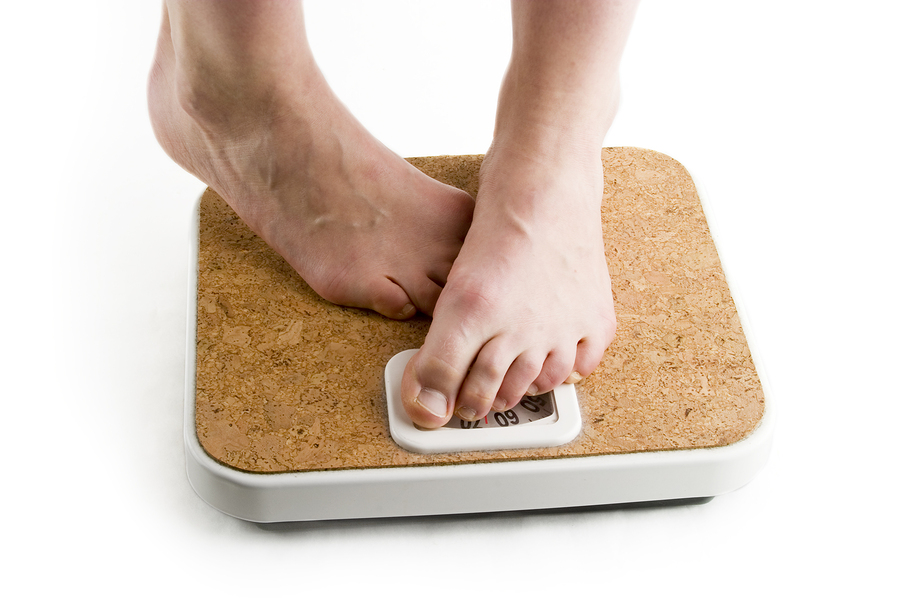- Make It Yourself Lavender Heart-Shaped Bath Bombs!
- 20 Things You Never Knew About “Down There”
- 12 Best Foods For Those Suffering From Arthritis Pain
- 12 Personal Hygiene Mistakes Almost Everyone Makes (Mom Never Told You About #4!)
- 15 Medicinal Plants And Herbs From The Cherokee People
- 12 Mind-Blowing Benefits Of Drinking Coconut Water During Pregnancy
- 12 Outstanding Winter Foods That Won’t Fatten You Up Like A Christmas Turkey
3 Critical Mistakes That Can Prevent You From Losing Weight

Photo credit: bigstockphoto.com
So many people set out on a journey toward weight loss with the best of intentions. They buy dieting books, they hit the gym, and they try to cut out carbs. But when they fail to shed those unwanted pounds, they get frustrated, give up, and go back to their old eating habits.
Why does this happen? Why do some people succeed at losing weight, and others fail to make progress and end up feeling like they are running on the proverbial hamster wheel? It could very well be because they were making some key mistakes in their weight loss strategy— mistakes that are counterproductive to losing weight and are, unfortunately, all too common.
Mistake #1: Not Taking Portion Size into Account
Many people who are trying to lose weight become fixated on what they are eating, without thinking about how much of it they are taking in. Losing weight is not just a matter of eating the right thing, it is a matter of moderating the number of calories you are taking in as well.
Some commercial dieting programs like Jenny Craig and Weight Watchers are built around this idea. These programs clearly define for dieters what how much of a given food equals one “serving”. So when a diet calls for “two servings of food X,” people following the diet understand exactly how much food they are supposed to eat.
Even if you are eating healthy foods, you can still hinder your weight-loss goals by eating too much of them. The two-pronged approach of eating the right things and reducing caloric intake is the most effective way to lose weight. This does not mean that you starve yourself. It simply means educating yourself about portion sizes and following them.
READ MORE: Why It’s Harder To Lose Weight Today Than 30 Years Ago
Mistake #2: Too Many Drinkable Meals
Shakes are all the range among people trying to lose weight, and for many people, they can indeed be beneficial. However, there are a number of problems with these drinkable calories that people who want to lose weight need to be aware of.
One challenge is that shakes may not fill you up as much as eating solid food. A recent article from Natural News uses the example of a fruit smoothie to illustrate this concept: let’s say you choose to drink a fruit smoothie, which has 600 calories in it. The smoothie might be 16 ounces in volume, but it still will not fill you as much as eating 600 calories of solid fruit. Eating that much fruit will leave you feeling quite full for a while, and if you feel full, you are less likely to eat more. Many people underestimate the importance of “volumetrics,” or how filling their food is.
Another problem with shakes is that many of them contain loads of sugar. This causes a spike in your blood sugar levels, followed by a crash. This doesn’t just leave you feeling tired, but makes you hungry again too. And so you end up eating more than you may have planned, and your weight loss journey becomes a little bit harder.
Continue to Page 2

Photo credit: bigstockphoto.com
Mistake #3: Not Thinking About the Timing and Frequency of Meals
Most people eat three meals a day: breakfast, lunch, and dinner. This is very ingrained in our culture, and it has been that way for many centuries. But science is showing that for people who are trying to lose weight, eating more meals might actually be beneficial. Confused? Read on.
It has to do with the blood sugar levels we mentioned in point #2. Many athletes actually recommend eating 5 or 6 smaller meals each day as opposed to 3 bigger ones. When you do this, your body begins to think that there is an abundance of food in your environment (since it is receiving new food all the time) and it does not store caloric energy as body fat. Doing this also helps maintain relatively stable blood sugar levels, which prevents you from feeling the urge to overeat.
Follow these tips in conjunction with your diet and exercise, and don’t be surprised if you start seeing quicker and more lasting results on your journey towards a healthier weight.
References:
































